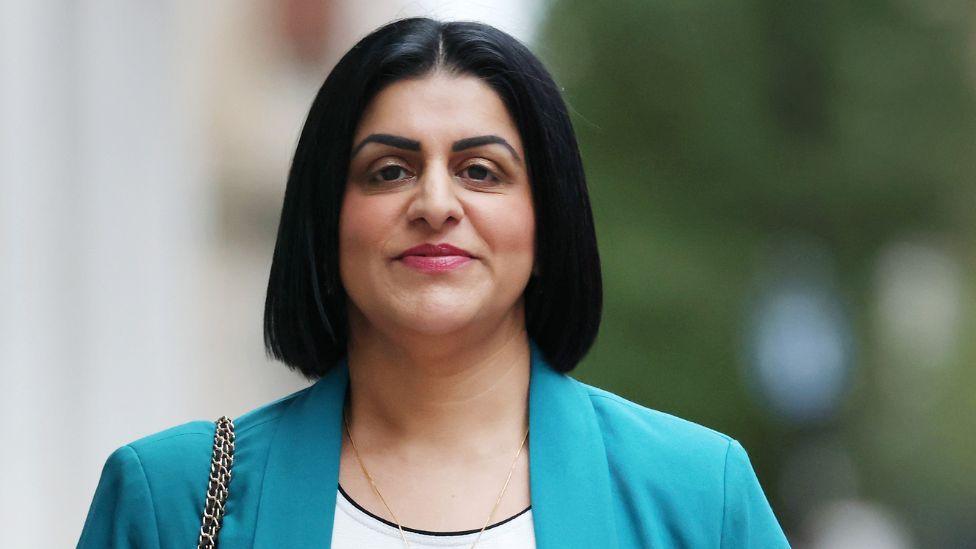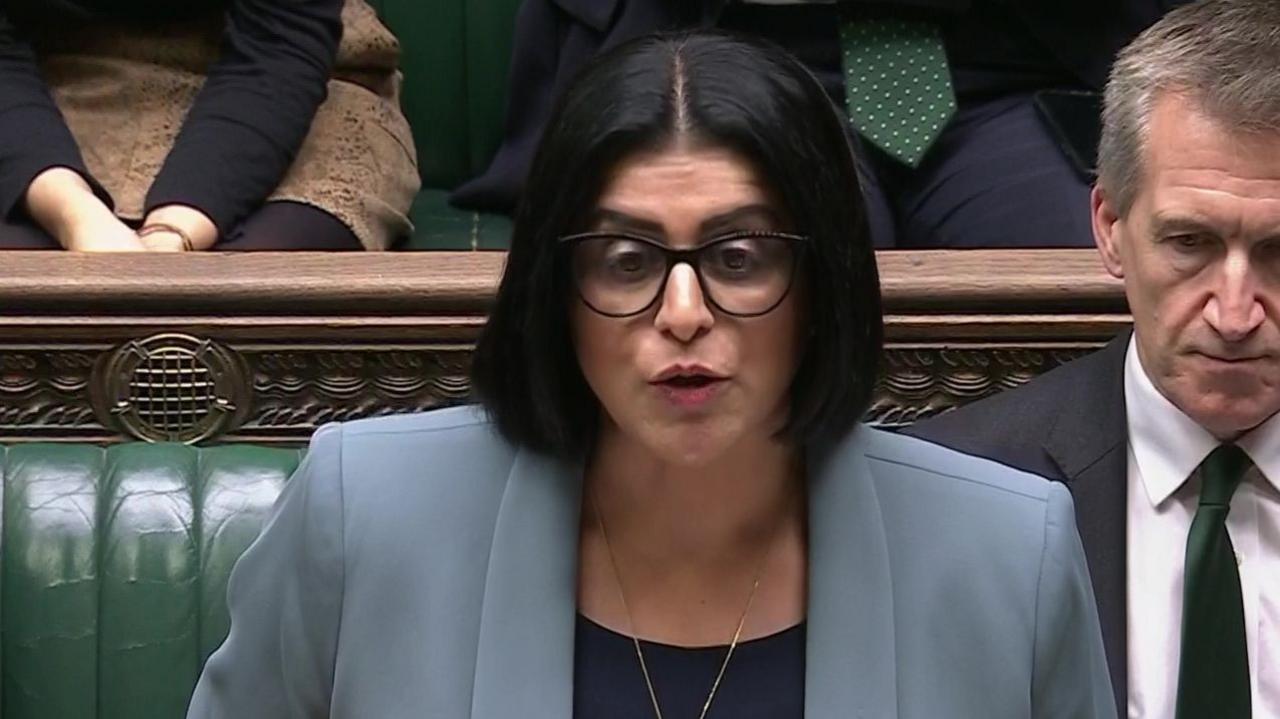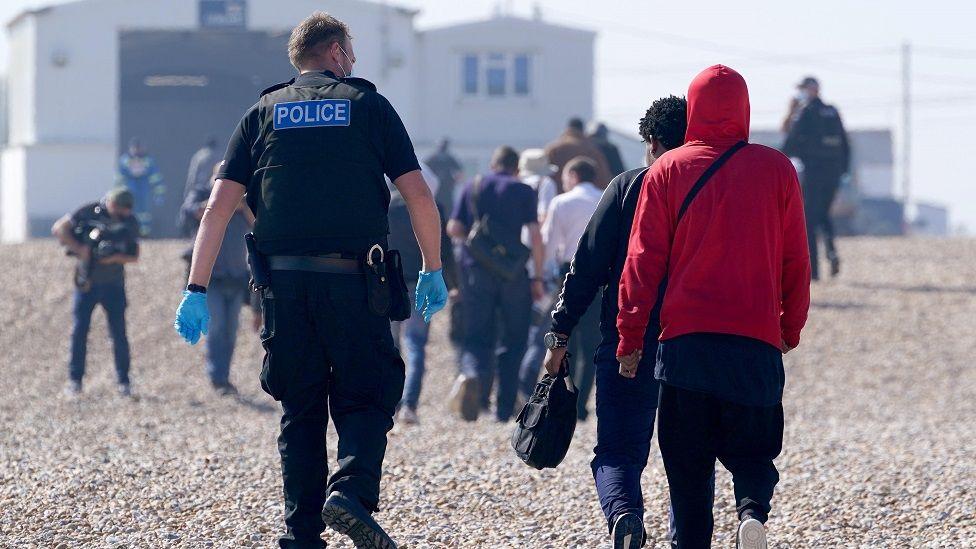Immigration changes will 'profoundly impact' Scottish care workers

- Published
Making legal migrants wait longer before settling permanently in the UK would have a "profoundly negative impact" on Scotland's care sector, it has been claimed.
Scottish Care, which represents independent social care services, says the changes would deter "much-needed" international workers who have a "vital role".
The UK government is proposing that workers on post-Brexit health and social care visas wait 15 years before permanent settlement - up from five years currently.
Home Secretary Shabana Mahmood announced the move as part of a string of changes to the immigration system over the last week.
Mahmood demands migrants earn right to settlement in UK
- Published29 September
Some migrants to face 20 year wait for settled status
- Published1 day ago
Scottish Care chief executive, Donald Macaskill, said he was "deeply concerned" by Mahmood's plans.
"Scotland's care sector is already facing acute workforce shortages," he said.
"With international colleagues playing a vital role in supporting older and vulnerable citizens.
"Forcing dedicated care workers to wait up to 15 years for settlement, and tying their future to restrictive criteria, will deter much-needed talent from staying in Scotland."
A report last year by Scottish Care found just over 66% of its members, external were actively recruiting from overseas.
It also found internationally recruited care workers made up nearly 100% of the workforce in some areas.

Donald Macaskill said Scotland's care sector faced acute workforce shortages
Mr Macaskill said the plans would undermine the sense of security and belonging for legal migrants already in Scotland.
He urged Scottish Labour to challenge the proposal from the UK Labour government, branding them "insensitive to Scotland's distinct needs".
"These changes will have a profoundly negative impact on the sustainability and quality of care and support services across Scotland," Mr Macaskill added.
"Such measures risk destabilising care provision, increasing turnover, and placing additional strain on already stretched services.
"Their impact especially in Scotland's remote and rural communities is incalculable.
"They also send a damaging message that the invaluable contributions of migrant care workers are not fully recognised or valued."
What are the UK's proposed immigration changes?
Settlement, also known as Indefinite Leave to Remain (ILR), allows someone to live in the UK permanently, work without restrictions and access public services.
Currently, most work and family visa holders can apply for settlement after five years.
Under the proposed changes the standard wait will be 10 years - with a range of criteria that would lengthen or shorten that period.
Legal migrants who claim benefits for less than 12 months will have to wait 15 years.
People who arrived on post-Brexit health and social care visas would have to wait 15 years.
Migrants reliant on benefits for more than 12 months face a 20-year wait for settlement, four times more than the current period and the longest in Europe.
The proposals will apply to the estimated 2.6 million who arrived since 2021, not to people who had already obtained settlement.

Shabana Mahmood announced wide-ranging reforms of the asylum and immigration system
Announcing the changes in the Commons, Mahmood said: "Migration will always be a vital part of Britain's story.
"But the scale of arrivals in recent years has been unprecedented."
The changes build on measures set out by the UK government in May.
It plans to roll out changes from spring 2026, after a consultation ends on 12 February.
The move comes after Mahmood also revealed a sweeping overhaul of the UK's asylum system on Monday.
This includes plans to end permanent refugee status and replace it with temporary status subject to review every 30 months.
The Scottish government said it was "deeply concerned" about the asylum reforms.
Social Justice Secretary Shirley-Anne Somerville said the changes would not deliver "a controlled and humane asylum system".
Meanwhile, Scottish Labour said the care sector was suffering because of "mismanagement and neglect" by the Scottish government.
Health spokeswoman Jackie Baillie MSP added: "Scottish Labour is committed to tackling the crisis in social care, starting with funding extra care packages so people don't get stuck in hospital and there is support for those who rely on care."
- Published4 days ago

- Published4 days ago

- Published4 days ago
